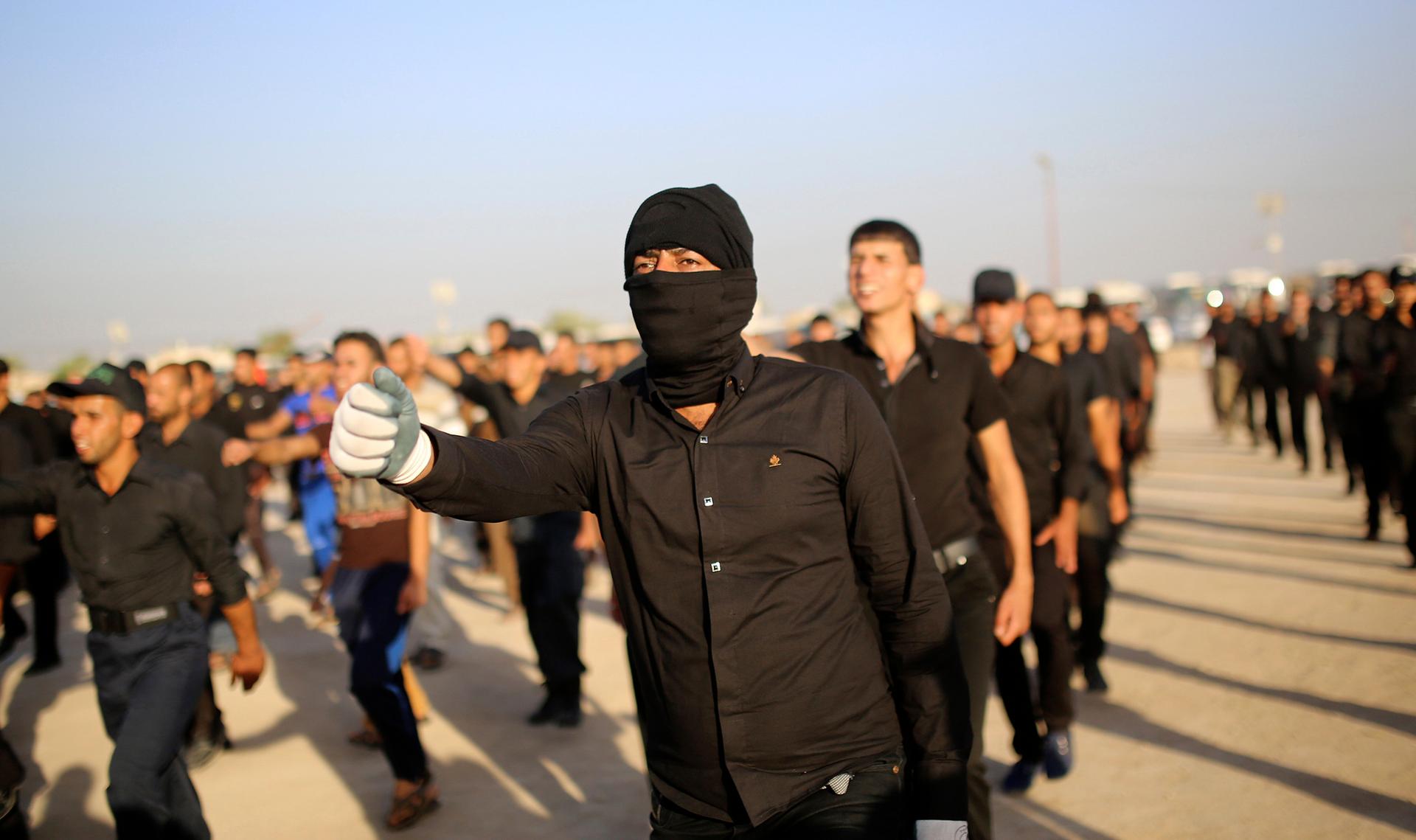Are we using the word ‘jihadi’ correctly?
Mehdi Army fighters loyal to Shiite cleric Moqtada al-Sadr march during a military-style training in the holy city of Najaf, June 16, 2014.
If you've seen any news coverage lately about what's happening in Iraq, it's most likely you've heard the terms "jihad" and "jihadis" used often.
For example members of the Islamic State of Iraq and Syria (ISIS) are referred to as "jihadis."
But what does the word mean?
"The word jihad, at its core, means struggle," says Azadeh Moaveni, author of the book "Lipstick Jihad" and former Iran correspondent for Time Magazine.
Moaveni says that even in Islamic context the word jihad can be defined in different ways.
"It can be a personal struggle — for example I set myself a very ambitious and difficult task that you want to resolve, it can also have the wider, military, political meaning, referring to waging a war in the name of religion."
Moaveni says it’s important to raise the question about how we use these words.
She says in a way, the ISIS perceives itself to be waging a religious war.
They have said they want to set up an Islamic emirate stretching from Syria to northern Iraq.
"But it’s a great question whether we should simply accept their self-definition. They are extremists, they’re radical, there are different words that we could use to talk about them," she says.
According to Moaveni, there's a resonance around jihadi because the term has become linked to al-Qaeda.
"It has connotations of extremely reactionary, violent discourse and it's almost beyond norms of political engagement," Moaveni says.
That's why the term is commonly used to talk about ISIS.
It's specially important how we use these terms, Moaveni says, because they might have an effect on how younger generations see them.
"For example, in Europe and Britain there are susceptible young Muslims who might be drawn into jihad," she says. "It's important to take the power of that term away from groups like ISIS."
Moaveni suggests that we use words that are less appealing such as extremists, radical or reactionary. "They would have a less romantic effect on young people who might be interested in signing up with them," she says.
Historically, she says, there was a time when jihad was used for religious battle. In the modern context, however, she says there's a lot more involved.
"It's very different than the 7th century," she adds.
If you've seen any news coverage lately about what's happening in Iraq, it's most likely you've heard the terms "jihad" and "jihadis" used often.
For example members of the Islamic State of Iraq and Syria (ISIS) are referred to as "jihadis."
But what does the word mean?
"The word jihad, at its core, means struggle," says Azadeh Moaveni, author of the book "Lipstick Jihad" and former Iran correspondent for Time Magazine.
Moaveni says that even in Islamic context the word jihad can be defined in different ways.
"It can be a personal struggle — for example I set myself a very ambitious and difficult task that you want to resolve, it can also have the wider, military, political meaning, referring to waging a war in the name of religion."
Moaveni says it’s important to raise the question about how we use these words.
She says in a way, the ISIS perceives itself to be waging a religious war.
They have said they want to set up an Islamic emirate stretching from Syria to northern Iraq.
"But it’s a great question whether we should simply accept their self-definition. They are extremists, they’re radical, there are different words that we could use to talk about them," she says.
According to Moaveni, there's a resonance around jihadi because the term has become linked to al-Qaeda.
"It has connotations of extremely reactionary, violent discourse and it's almost beyond norms of political engagement," Moaveni says.
That's why the term is commonly used to talk about ISIS.
It's specially important how we use these terms, Moaveni says, because they might have an effect on how younger generations see them.
"For example, in Europe and Britain there are susceptible young Muslims who might be drawn into jihad," she says. "It's important to take the power of that term away from groups like ISIS."
Moaveni suggests that we use words that are less appealing such as extremists, radical or reactionary. "They would have a less romantic effect on young people who might be interested in signing up with them," she says.
Historically, she says, there was a time when jihad was used for religious battle. In the modern context, however, she says there's a lot more involved.
"It's very different than the 7th century," she adds.
